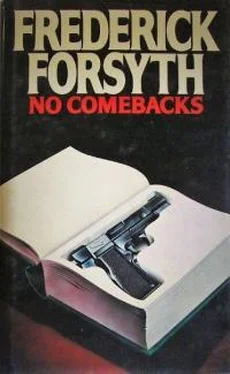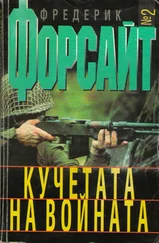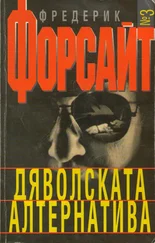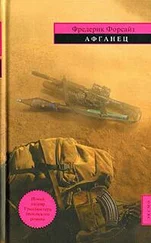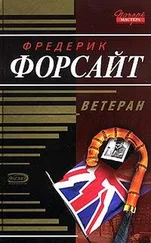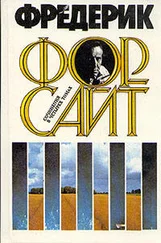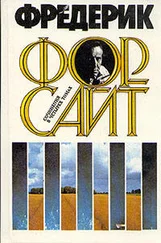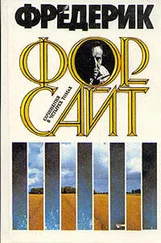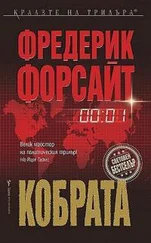There was silence in the street while the men searched the ground floor. At the upper bedroom window a pale face appeared. The crowd spotted it.
'There he is,' yelled three or four voices from the crowd, like hunt followers spotting the fox before the riders. Just trying to be helpful. One of the bailiffs popped his head round the front doorpost. Hanley nodded upwards towards the bedroom window; the two men clumped up the narrow stairs. The face disappeared. There was no scuffle. In a minute they were coming down, the leader cradling the frail old man in his arms. He emerged into the drizzle and stood undecided. The relief worker hurried forward with a dry blanket. The bailiff set the old man down on his feet and the blanket was wrapped round him. He looked underfed and slightly dazed, but most of all very frightened. Hanley made up his mind. He turned towards his car and beckoned the driver forward. The council could have him later for the old folks home, but first a damn good breakfast and a hot cup of tea was called for.
'Put him in the back,' he told the bailiff. When the old man was settled in the warm rear seat of the car, Hanley climbed in beside him.
'Let's get out of here,' said Hanley to his driver. 'There's a transport cafe half a mile down here and second left. We'll go there.'
As the car moved back through the barrier and past the staring crowd, Hanley gave a glance at his unusual guest. The old man was dressed in grubby slacks and a thin jacket over an unbuttoned shirt. Word had it he had not looked after himself properly for years, and his face was pinched and sallow. He stared silently at the back of the car seat in front of him, not returning Hanley's gaze.
'It had to come sooner or later,' said Hanley gently. 'You knew that all along.'
Despite his size and the capacity, when he wished to use it, to cause hard villains from the dockland to wet their knickers when he faced them, Big Bill Hanley was a much kinder man than his meaty face and twice-broken nose would give reason to think. The old man turned slowly and stared at him, but he said nothing.
'Moving house, I mean,' said Hanley. 'They'll fix you up in a nice place, warm in winter, and decent food. You'll see.'
The car drew up at the cafe. Hanley descended and turned to his driver.
'Bring him in,' he said.
Inside the warm and steamy cafe Hanley nodded to a vacant corner table. The police driver escorted the old man to the corner and sat him down, back to the wall. The old man said nothing, neither of thanks nor protestation. Hanley glanced at the wall chart behind the counter. The cafe owner wiped his hands on a damp dishcloth and looked inquiringly.
'Double eggs, bacon, tomatoes, sausage and chips,' said Hanley. 'In the corner. The old fella. And start with a mug of tea.' He placed two pound notes on the counter. 'I'll be back for the change,' he said.
The driver returned from the corner table to the counter.
'Stay there and keep an eye on him,' said Hanley. 'I'll be taking the car myself.'
The driver thought it was his lucky day; first a warm car, now a warm café. Time for a cup of tea and a smoke.
'Will I sit with him, sir?' he asked. 'He smells a bit.'
'Keep an eye on him,' repeated Hanley. He drove himself back to the demolition site in Mayo Road.
The team had been all ready and prepared and they were not wasting time. A line of contractor's men came in and out of the house, bearing the squalid goods and chattels of the former occupant, which they deposited in the road under the now streaming rain. The council housing officer had his umbrella up and watched. Inside the car-park compound two mechanical shovels on their rubber wheels were waiting to begin on the rear of the house, the back yard and small privy. Behind them waited a line of ten tipper trucks to carry away the rubble of the house. Mains water, electric current and gas had been cut off months ago, and the house was damp and filthy as a result. Sewage there had never been, hence the outside privy which had been served by a buried septic tank, soon to be filled in and concreted over forever. The council housing officer approached Hanley when he got out of his car again. He gestured towards the open back of a council van.
'I've saved what we could of any sentimental value,' he volunteered. 'Old photos, coins, some medal ribbons, some clothes, a few personal documents in a cigar box, mostly mouldy. As for the furniture…' he indicated the pile of bric-a-brac in the rain, 'it's alive; the medical officer has advised us to burn the lot. You wouldn't get tuppence for it.'
'Aye,' said Hanley. The official was right, but that was Ids problem. Still, he seemed to want moral support.
'Will he get compensation for this?' asked Hanley.
'Oh, yes,' said the official eagerly, anxious to explain that his department was not a heartless beast. 'For the house, which was his own title property, and a fair valuation for the furniture, fixtures, fittings and any personal effects lost, damaged or destroyed. And a displacement allowance to cover the inconvenience of moving… though frankly he's cost the council a lot more than the total by refusing to quit for so long.'
At this moment, one of the men came from round the side of the house carrying two chickens, head down, in each hand.
'What the hell do I do with these?' he asked no one in particular.
One of his colleagues told him. Barney Kelleher snapped off a photo. Good picture, that, he thought. The last friends of the Hermit of Mayo Road. Nice caption. One of the contractor's men said he too kept chickens and could put them in with his small flock. A cardboard carton was found, the damp birds popped inside and they went in the council van until they could go to the workman's home.
Within an hour, it was over. The small house was gutted. A burly foreman in gleaming yellow oilskins came over to the council official.
'Can we start?' he asked. 'The boss wants the car park finished and fenced. If we can concrete by tonight, we can tar it over tomorrow first thing.'
The official sighed. 'Go ahead,' he said. The foreman turned and waved toward a mobile crane from whose arm swung a half-ton iron ball. Gently the crane moved forward to the flank of the house, planted itself and rose with a soft hiss onto its hydraulic feet. The ball began to swing, gently at first, then in bigger arcs. The crowd watched fascinated. They had seen their own houses go down in just this way, but the sight never palled. Finally, the ball thumped into the side of the house, not far from the chimney, splintering a dozen bricks and sending two cracks racing down the wall. The crowd gave a long, low 'Aaaaaah'. There's nothing like a nice bit of demolition to cheer up a bored crowd. At the fourth crunch, two upper windows popped out from their frames and fell into the car park. A corner of the house detached itself from the rest, waltzed slowly in a half spiral and collapsed into the back yard. Moments later, the chimney stack, a solid column of brick, snapped at the mid-section and the upper portion crashed through the roof and down through the floor to ground level. The old house was coming apart. The crowd loved it. Chief Superintendent Hanley got back into his car and returned to the caf6.
It was even warmer and more humid than before. His driver sat at the bar counter before a steaming cup of tea. He stubbed out a cigarette as Hanley walked in and slithered from his bar stool. The old man seemed busy in the corner.
'Is he finished yet?' asked Hanley.
'He's taking a powerful long time, sir,' said the driver. 'And the buttered bread is going down like there was no tomorrow.'
Hanley watched as the old man embalmed yet another morsel of greasy fried food in soft, white bread and began to chew.
'The bread'11 be extra,' said the caf6 owner. 'He's had three portions already.'
Читать дальше
